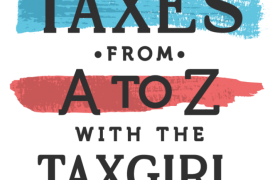It’s my annual “Taxes from A to Z” series! If you’re wondering whether you can claim wardrobe expenses or whether to deduct a capital loss, you won’t want to miss it.
T is for Tax Treaty.
When taxpayers live or do business in more than one country, they may be subject to double taxation. To help resolve those issues, countries may agree to tax residents at a reduced tax rates, apply certain tax benefits, or exempt certain items of income from tax: that agreement is called a tax treaty.
The United States has income tax treaties with a number of foreign countries. You can find a list of those here.
The great thing about tax treaties is that they are controlling, meaning that the provisions in those agreements apply no matter what the law may otherwise say. For example, the rules that determine if you are a U.S. tax resident do not override tax treaty definitions of residency. However, if a tax treaty does not cover a particular kind of income, or if there is no treaty between your country and the United States, the regular rules apply and you must pay tax on the income as outlined in the Tax Code.
Typically, treaty provisions are reciprocal which means that they apply to both treaty countries. The idea is that what might be subject to tax in one country should not also be taxed in another country (though that’s not always the outcome). That’s important for U.S. taxpayers since we have a global tax system, meaning that the U.S. taxes all income no matter where situated – unless that income is otherwise exempt. To reduce your overall tax burden, if you are entitled to claim benefits under a tax treaty, you’ll want to read all of the applicable provisions to see whether you might be entitled to credits, exemptions, or reduced rates of tax.
For more information on tax treaties, including summaries of tax treaty provisions between certain countries, check out Internal Revenue Service (IRS) Pub 901, U.S. Tax Treaties (downloads as a PDF).
For more Taxes A to Z, check out:
- A is for Affordable Care Act Reporting
- B is for Back Pay
- C is for Canceled Debt
- D is for Dependents
- E is for Eligible Rollover Distributions
- F is for Fat Finger Error
- G is for GI Bill
- H is for Harvesting Losses
- I is for Investment Income Expense
- J is for Junk Bonds
- K is for Strike Price
- L is for Late Filing & Late Payment Penalties
- M is for Marginal Tax Rate
- N is for NSF
- O is for Over-The-Counter Medications
- P is for Pease Limitations
- Q is for Quid Pro Quo
- R is for Rounding Off
- S is for Simplified Option for the Home Office Deduction




